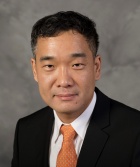Jaehong Kim
Yale University
Professor and Chair
Department of Chemical and Environmental Engineering
Friday, September 20, 2019
+Co-Sponsored with Environmental and Water Resource Engineering
Edible-Dye Enhanced Solar Disinfection
The rural developing world faces disproportional inequity in drinking water access, where point-of-use water treatment technologies often fail to achieve adequate levels of pathogen removal, especially for viruses. Solar disinfection (SODIS) is practiced because of its universal applicability and low implementation cost, though the excessively long treatment time and lack of safety indication hinder wider implementation. This study presents an enhanced SODIS scheme that utilizes erythrosine – a common food dye – as a photosensitizer to produce singlet oxygen for virus inactivation and to indicate the completion of water disinfection through photobleaching color change. Experimental results and predictions based on global solar irradiance data suggest that over 99.99% inactivation could be achieved using erythrosine dye within 5 minutes in the majority of developing countries, reducing the time for SODIS by two orders of magnitude. Preserving the low cost of traditional SODIS, erythrosine embodies edible dye-enhanced SODIS, an efficient water disinfection method that could potentially be used by governments and non-governmental organizations to improve drinking water quality in rural developing communities. This talk also summarizes our recent efforts to explore plant-extracted photosensitizers to advance this concept for applications in more realistic settings.
Bio
Jaehong Kim is currently Henry P. Becton Sr. Professor of Engineering and Department Chair of Chemical and Environmental Engineering in School of Engineering and Applied Science at Yale University. His areas of interest include: 1) environmental application of nanomaterials; 2) development of photoluminescence / photocatalysis technology for environmental and energy application; and 3) membrane process and materials development. Kim received B.S. and M.S. degrees in chemical and biological engineering from Seoul National University in Korea in 1995 and 1997, respectively, and a Ph.D. degree in environmental engineering from the University of Illinois at Urbana-Champaign in 2002. After graduation, he joined the School of Civil and Environmental Engineering at Georgia Institute of Technology where he later held the title of Georgia Power Distinguished Professor and Associate Chair for Undergraduate Programs. He then moved to Yale University in 2013 as Barton L. Weller Endowed Professor. He has taught undergraduate courses such as Water Quality Engineering, Environmental Technology in the Developing World, and Environmental Engineering Laboratory, and graduate courses such as Physicochemical Processes and Design of Drinking Water Treatment Facilities. He is a recipient of various awards including Ackerman Award for Teaching and Mentoring from Yale University (2017), Bill Shultz Junior Faculty Teaching Award from School of Civil and Environmental Engineering (2013), Walter L. Huber Civil Engineering Research Prize from American Society of Civil Engineers (2013), Top Environmental Technology Paper Award from American Chemical Society (2012), Paul L. Busch Award from Water Environment Research Foundation (2009), Excellence in Research Award from Georgia Institute of Technology (2009), and CETL/BP Junior Faculty Teaching Excellence Award from Georgia Institute of Technology (2007).
Friday, September 20, 2019
- Time: 10:00 AM
- Location: 210 Student Union
- Seminar Flyer

Jaehong Kim
Professor and Chair
Yale University